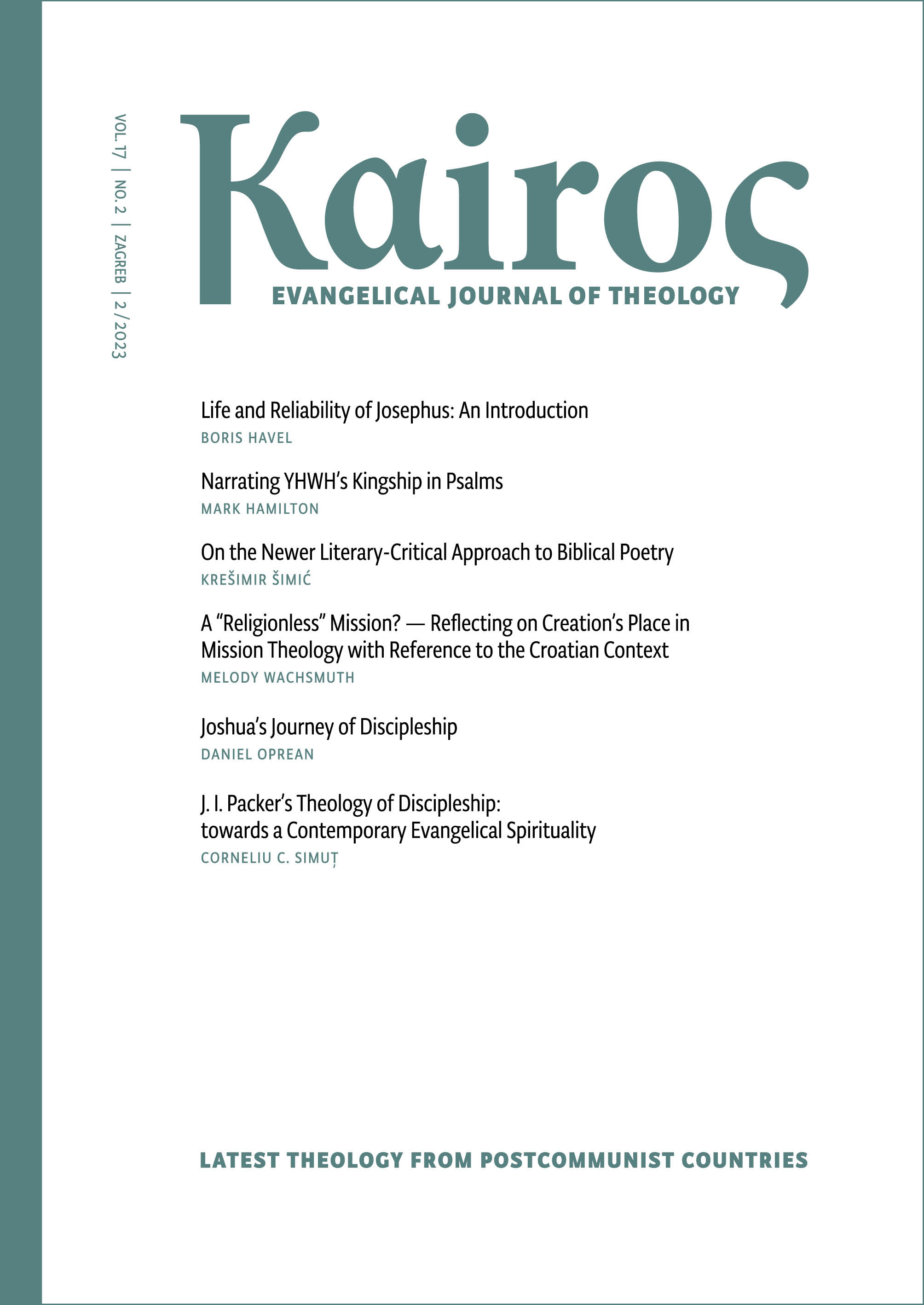On the Newer Literary-Critical Approach to Biblical Poetry
DOI:
https://doi.org/10.32862/k.17.2.3Keywords:
Bible, poetry, versification, James Kugel, Robert Alter, Jan FokkelmanAbstract
This presentation discusses the views of three renowned authors – James Kugel, Robert Alter, and Jan Fokkelman – known for their literary-critical approach to the Bible, concerning biblical poetry. According to Kugel, looking at the Bible through the lens of division into poetry and prose (lyrical and epic literature) means looking at it wrongly. He maintains that even meticulous analyses of parallelism can be distorted if viewed through this lens. Therefore, Kugel asserts that there is no poetry in the Bible but rather a “continuum” of loosely connected parallel structures in what we see as prose sections and “heightened rhetoric” in what we often erroneously consider verses. According to Alter, biblical poetry is based on semantic parallelism. However, he points out that poetic expression deliberately avoids complete parallelism, just as language resists mere synonyms by introducing subtle differences between related terms. In contrast, Fokkelman believes that combining prose and poetry, and even transitioning between them, is possible because most Hebrew sentences contain two to eight words and are usually linked in sequences through parataxis (using “… and… and… but… and then”). All three opinions lead to the conclusion that biblical poetry, like prose, is to a large extent sui generis...
Published
Issue
Section
License
Copyright (c) 2025 Kairos : Evangelical Journal of Theology

This work is licensed under a Creative Commons Attribution 4.0 International License.


